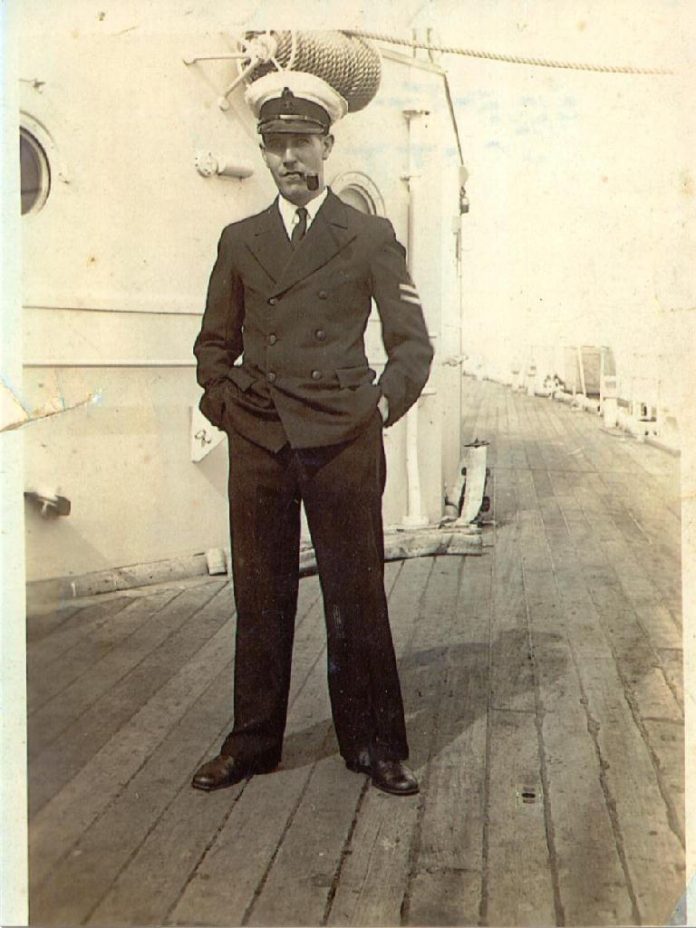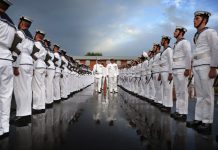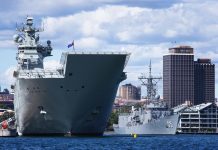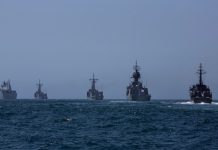
CONTRARY to popular opinion, the initial battle of the 19th February 1942, commemorated for the 74th time this week, did not commence at the Darwin wharf, but at the boom net which defended the harbour, several kilometres away near East Point.
Nine Zero fighters, detached from the main incoming Japanese carrier force of 188 aircraft, had shot up a heavy twin engine aircraft on Bathurst Island, nearly inadvertently hitting Missionary Father John McGrath, sending a warning message from his nearby radio hut. The fighters, then left behind the main force, tracked direct for the target of the town of Darwin rather than trailing behind in the big planned circle route, designed to catch the defenders by surprise by attacking from the south. They arrived over the boom net and its tending ships a few minutes before the main attack commenced.
Leading Seaman Francis Emms, a cook on board HMAS Kara Kara, rushed to his Action Post. Firing his machine gun from the ship’s weather deck, he was fatally wounded by the incoming fire from the Zeroes. After the raid he was taken to the damaged but still functioning Hospital Ship Manunda. Emms died later that day.
Leading Seaman Francis Emms was a Navy veteran, unlike many of the people who had joined the forces at the outset of WWII. A Tasmanian, he had been in the Navy since 1928 and had originally qualified as a gunnery rating, operating the big guns which were warships’ main armament.
While serving in the cruiser HMAS Sydney in the Mediterranean his eyesight began to deteriorate. Rather then leave the Navy he decided to transfer to the Supply Branch as a Cook. Although married with a daughter by then, he loved the Navy and wanted to continue to serve.
In September 1940 Emms was posted to the Darwin shore depot HMAS Melville where he was employed as a cook at the base, and also in the boom defence vessels which operated the anti-submarine boom net stretched across Darwin harbour.
Later it emerged that Emms’ accurate operation of the machine guns had been continued even after he had been seriously wounded. His constant and accurate fire forced the Japanese aircraft to break off their attack and probably saved the lives of several of his shipmates.
Buried at sea, Emms was subsequently awarded a posthumous Mention in Dispatches for courage and devotion to duty. Many of his shipmates believed he should have been awarded the Victoria Cross.



